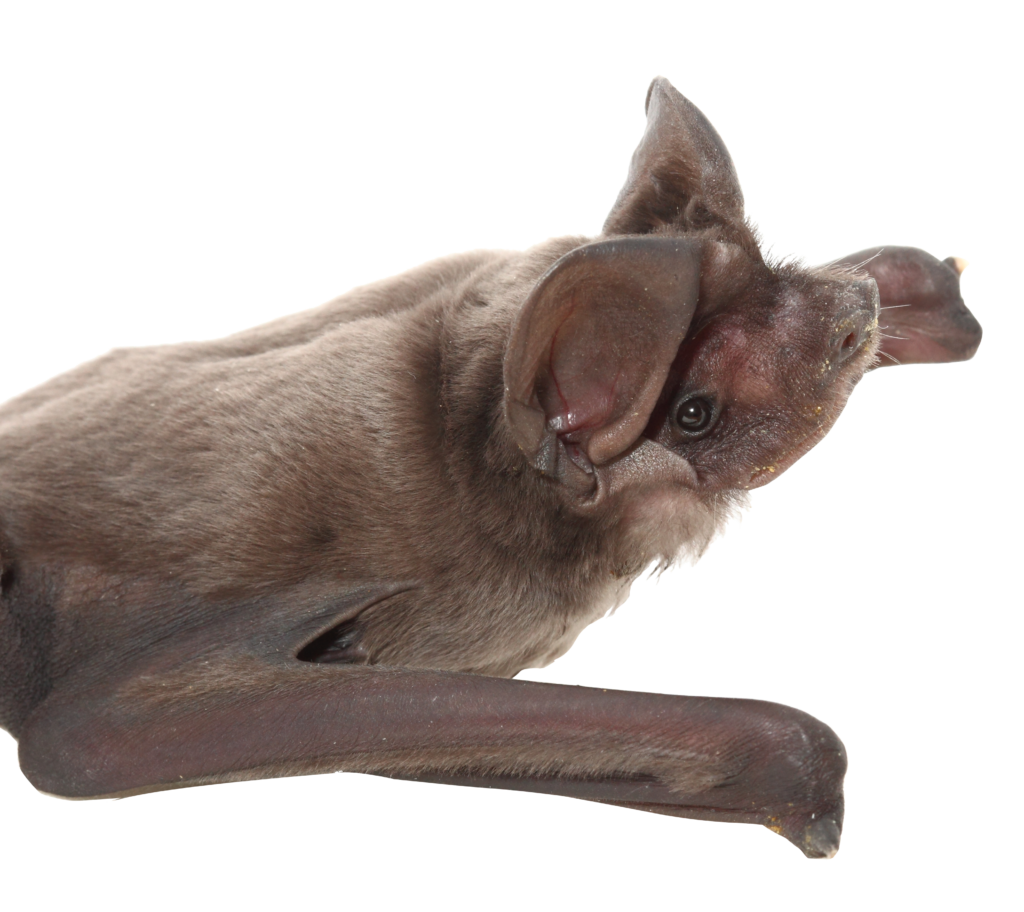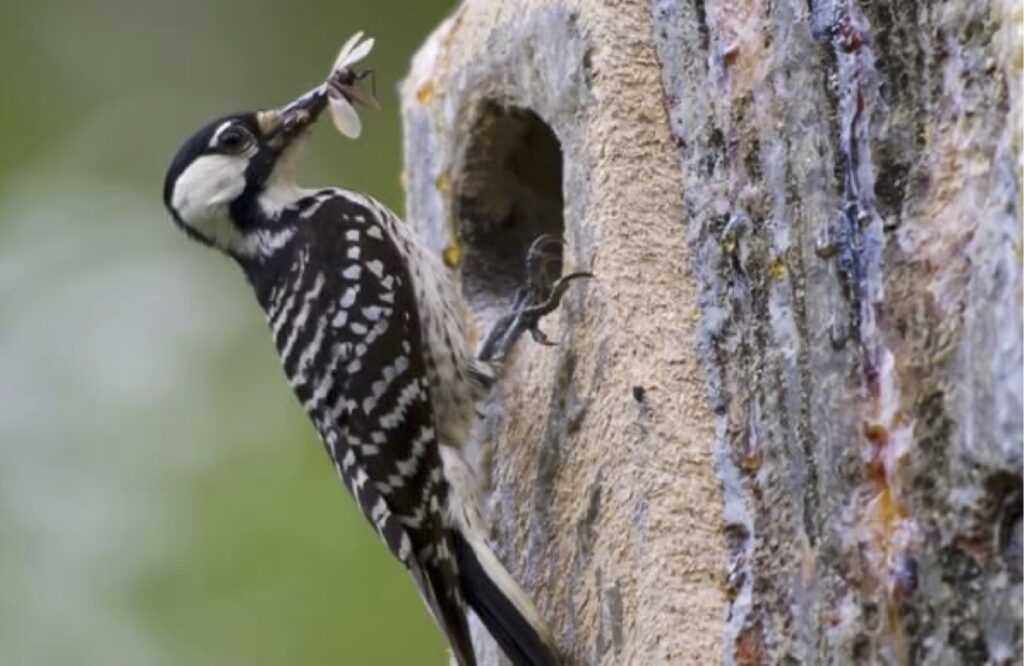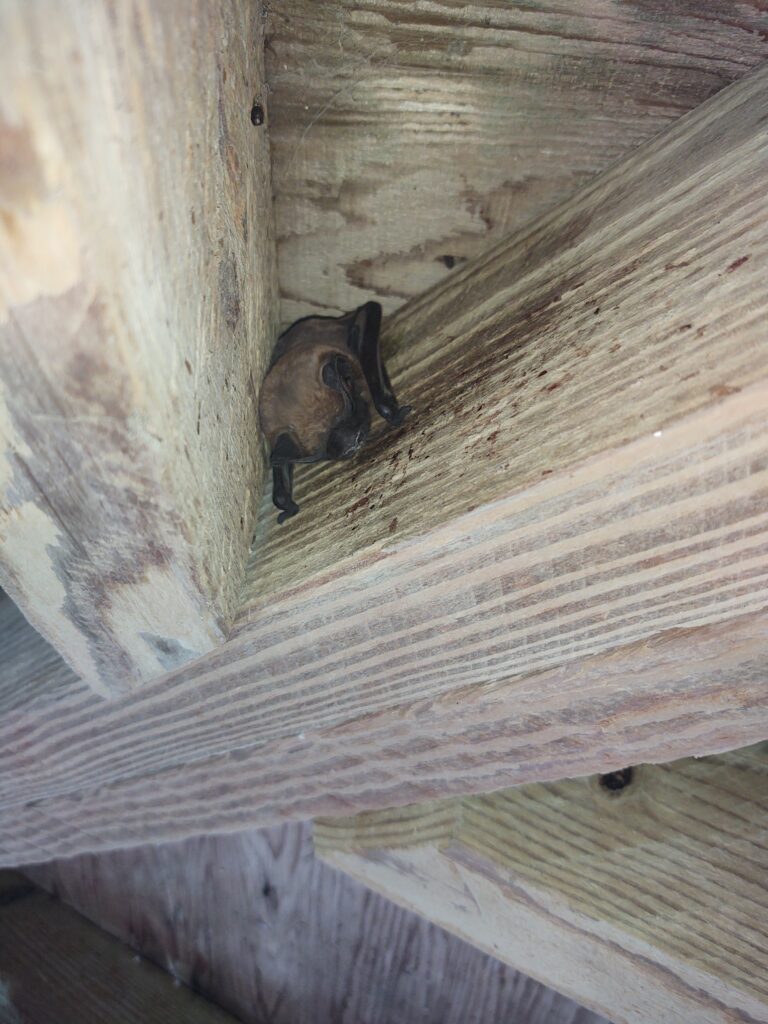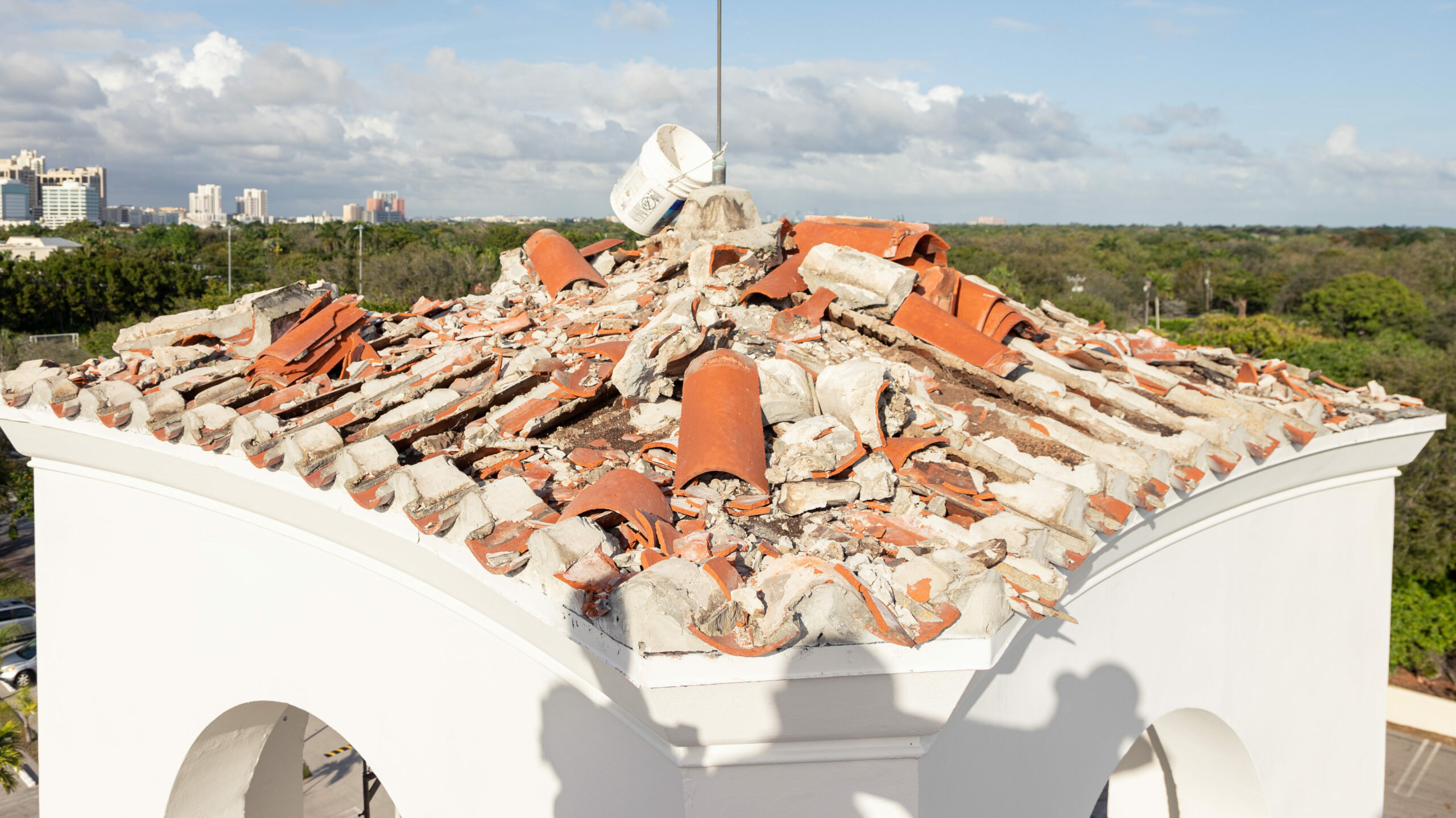
OUR
ENDANGERED NEIGHBOR
Meet the Federally Endangered
Florida Bonneted Bat
Photo Credit: Dustin Smith/Zoo Miami
Many people in the greater Miami area don’t realize that they have a very special and highly endangered neighbor, the federally endangered Florida bonneted bat. In fact, this bat may even be sharing space with you in your home or business. Although some people may find this unsettling, others may find it exciting
Many people in the greater Miami area don’t realize that they have a very special and highly endangered neighbor, the federally endangered Florida bonneted bat. In fact, this bat may even be sharing space with you in your home or business. Although some people may find this unsettling, others may find it exciting that they have one of the rarest mammals and bats in North America living right next to them in a large city like Miami. The bats aren’t choosing to live in buildings, but they have adapted to try to survive and have improvised when their vast pine forest home was rapidly destroyed in the last 100 years with a growing Miami.

The Florida bonneted bat was believed to have lived in harmony with red-cockaded woodpeckers, likely for tens to hundreds of thousands
of years on the eastern coast of Florida as fossils found here indicate. Vacated cavities made by the woodpeckers in old growth slash pine trees made the perfect home for them. With the woodpecker and the old growth pines now gone from the Miami area, the bats began to look for other cavities, like under barrel roof tile and holes in buildings roof flashing or soffits.
But, if you had a colony of Florida bonneted bats living in your home’s roof, chances are you would never know. They form small colonies of mostly females and young with a single dominant male, usually around a dozen individuals in total. They are quiet, shy, and harmless. Unlike their cousin, the Brazilian free-tailed bat, that is our most common bat found in buildings down here and can form

roosting in a wooden shelter
in a public park
colonies into the thousands, they don’t have a musky odor associated with them. Unless you happened to be looking at the exact correct spot after dusk, you would likely never know that they were there. And this is what usually puts them at the most risk.
We all know roofs can take a beating in South Florida with the frequent severe storms and termites can eat away at homes with wood construction elements. But when people get their roofs repaired or have their homes tented for termites, these very rare and shy bats are sleeping away in the structures. An entire colony of these bats are at risk of being injured or killed by roofers doing demolition and if the house is tented and filled with poisonous gas for termites. I always encourage homeowners to spend a
Example of a Spanish tile roof that was undergoing demolition where a colony of Florida bonneted bats were found

couple sunsets outside their house watching their rooflines before they have any work done on their home
Why should we care about these bats? Unknown by the vast majority of people living here, bats provide enormous amounts of economic benefit and wellbeing to people. It would be difficult to imagine what our nights would be like in Miami if we didn’t have hundreds of thousands of bats cleaning our skies every night of flying insects. Bats offset pesticide use for communities and farmers. We have evidence of the Florida bonneted bats in our area eating pests of avocado trees and other crops found in the agricultural areas of the Redlands. These ecosystem services can total into the millions of dollars saved each year. So, if you don’t enjoy having flying insects around you, enjoy beautiful landscaping, and low pesticide use on your foods, you should be a fan of bats
Article by Frank Ridley, DVM
To find out more about Florida bonneted bats please visit: https://www.zoomiami.org/florida-bonneted-bat, https://floridabonnetedbat.org/
For plants that you could plant in your yard to help the Florida bonneted bat, use our guide: https://www.zoomiami.org/assets/2891/florida_bonneted_bat_plant_guide_for_mdc.pdf
To help you figure out if you might have bats in your home and what to do, use these guides available in English and Spanish: https://www.zoomiami.org/assets/2891/have-you-got-bats-web-comp_english.pdf.


